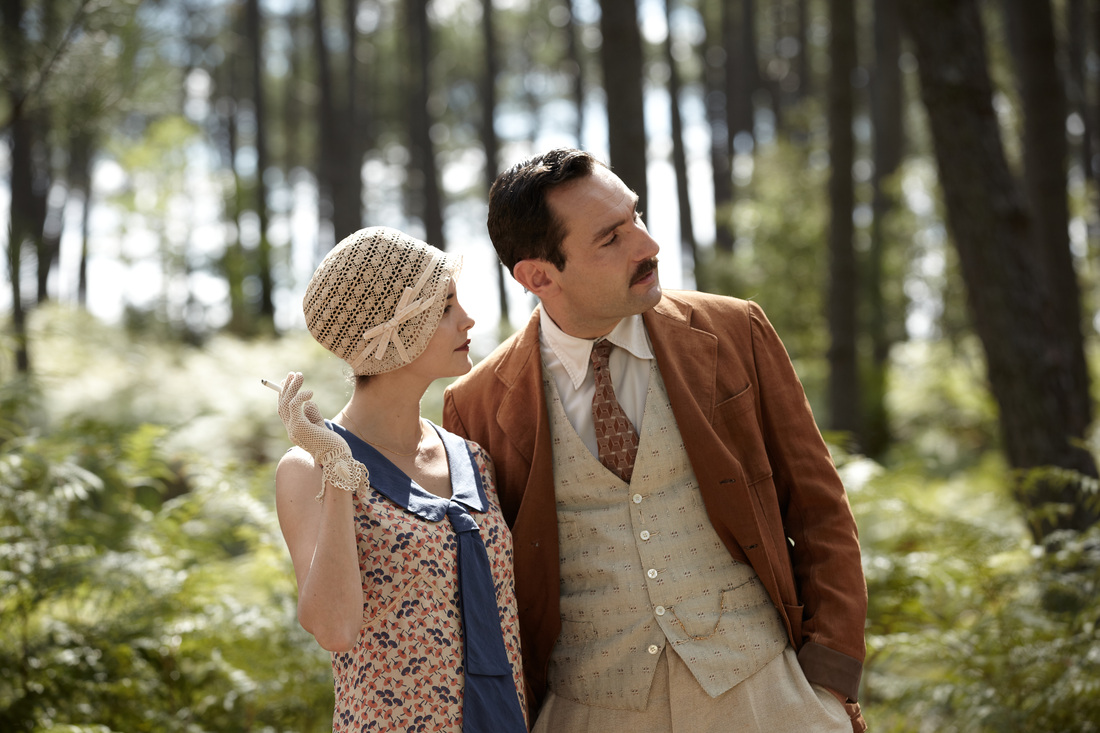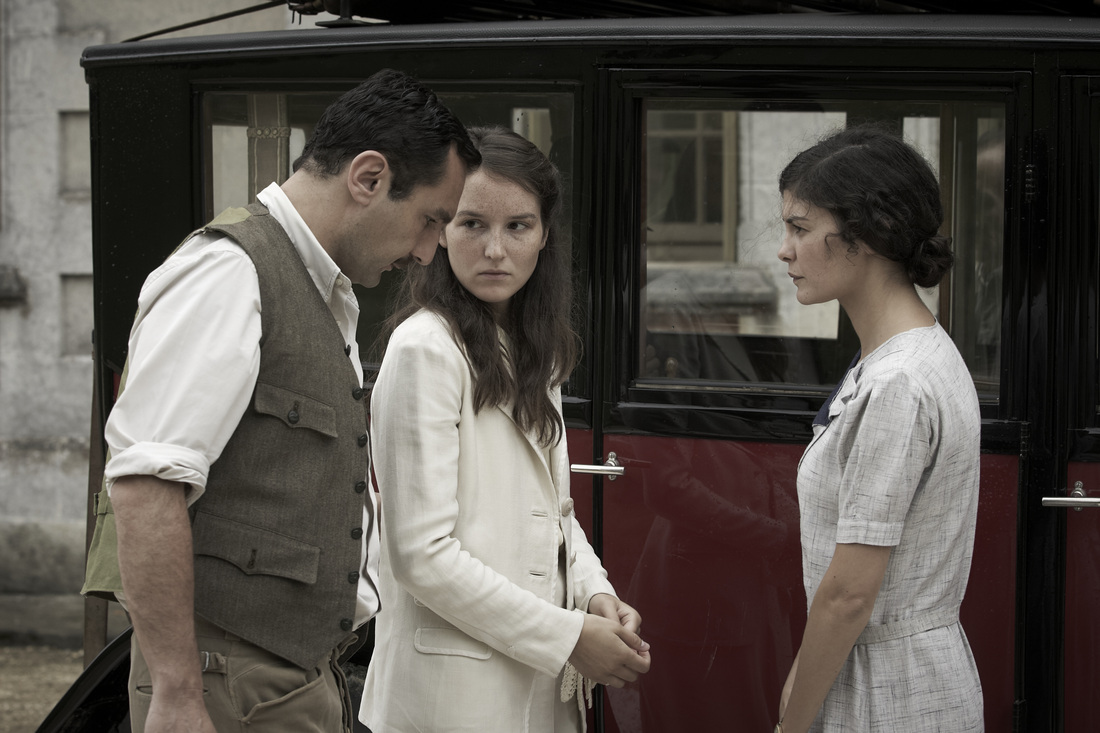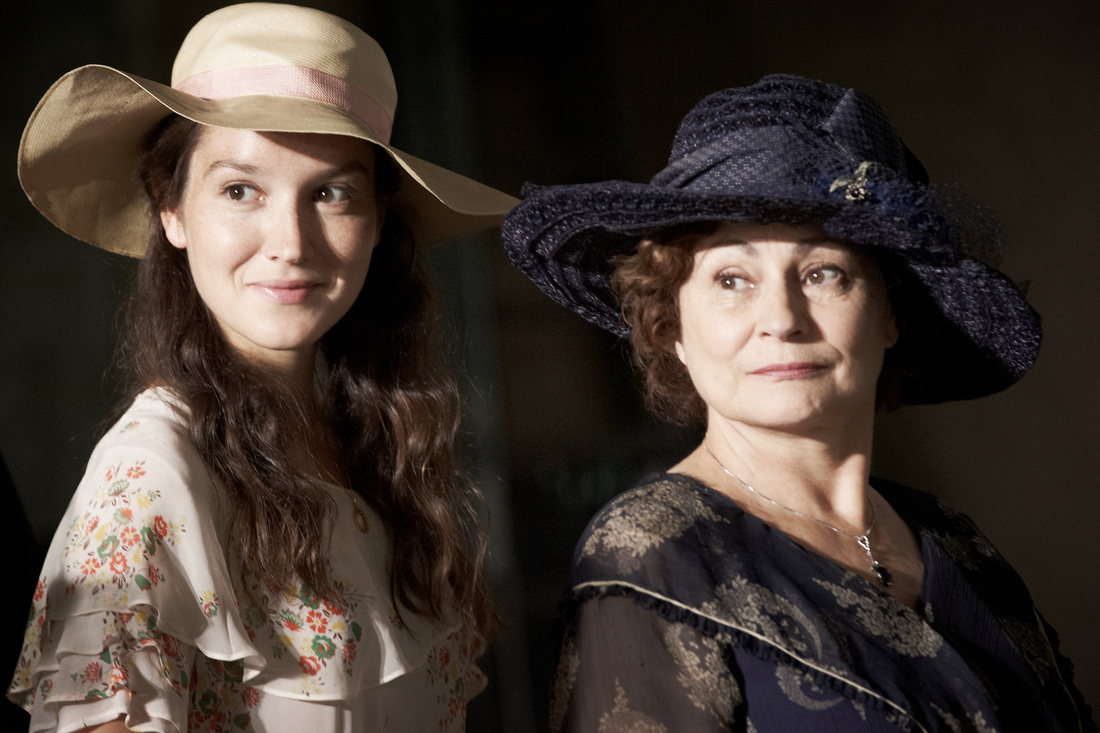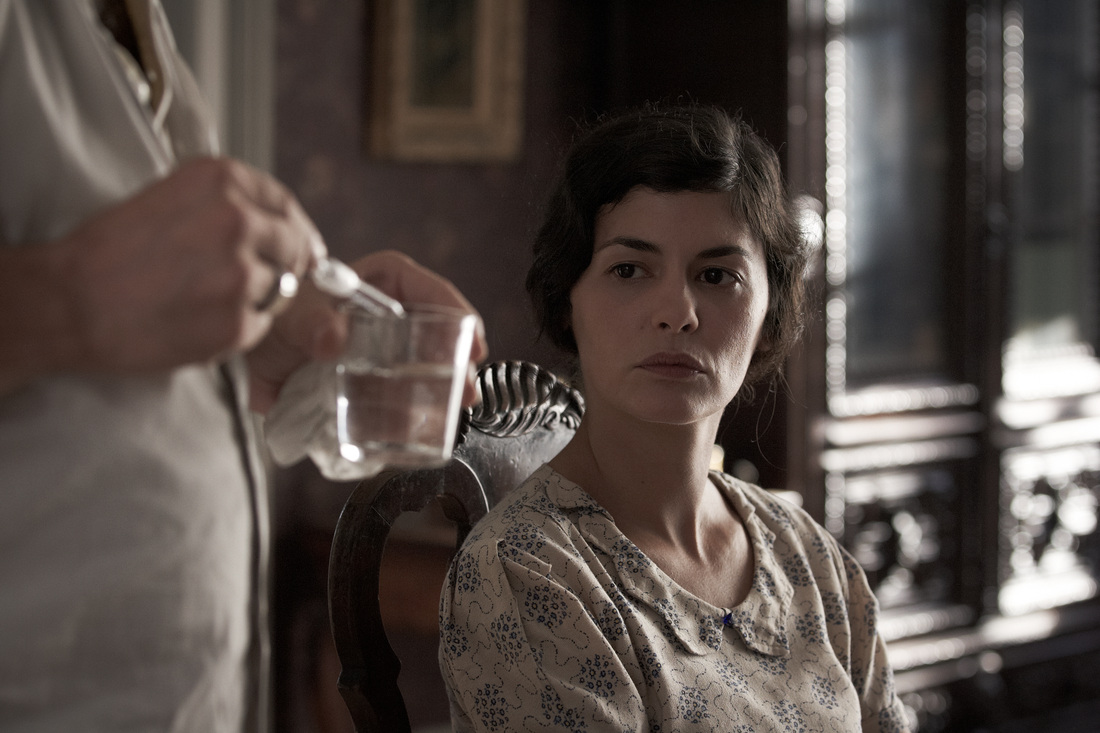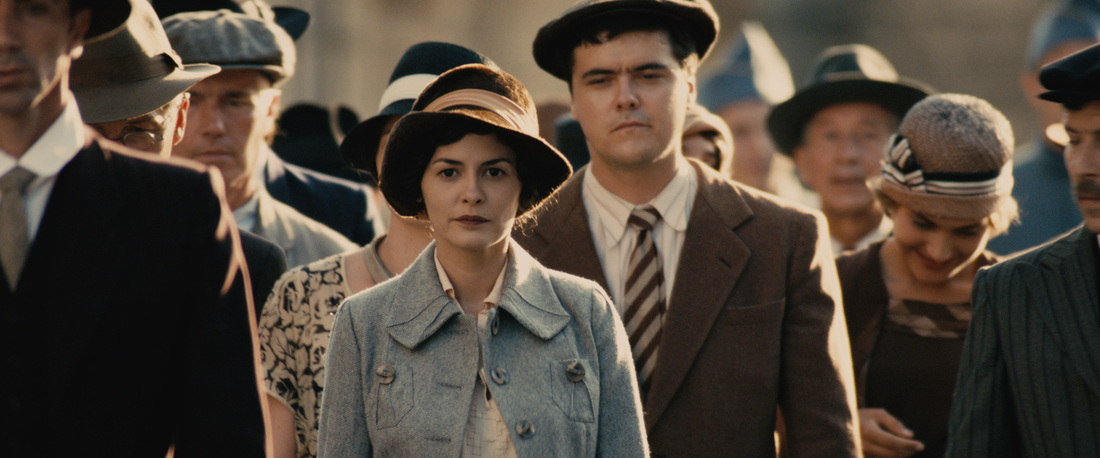|
How entertaining? ★★☆☆☆
Thought provoking? ★★☆☆☆ 28 May 2013
This article is a review of THERESE DESQUEYROUX.
|
“Know what everyone says? My brother will marry you in a few years,” Anne de la Trave to Thérèse Larroque
The summer of 1922 in forested Landes, southwest France, and fifteen year-old best buds Anne and Thérèse discuss marriage. Jump six years to April 1928 and that is just about to happen: Bernard Desqueyroux (Gilles Lellouche – TELL NO ONE, LITTLE WHITE LIES) is betrothed to Thérèse (Audrey Tautou). It is a business marriage, with both parties’ willing consent. Their families hold vast tracts of pine trees, and together will be even more riche. Thérèse talks of having ideas, but they are never voiced, and the film seems to be lacking in them. Tautou dials back her usual endearing charisma, and portrays a cold fish, who is little enthused by life.
The summer of 1922 in forested Landes, southwest France, and fifteen year-old best buds Anne and Thérèse discuss marriage. Jump six years to April 1928 and that is just about to happen: Bernard Desqueyroux (Gilles Lellouche – TELL NO ONE, LITTLE WHITE LIES) is betrothed to Thérèse (Audrey Tautou). It is a business marriage, with both parties’ willing consent. Their families hold vast tracts of pine trees, and together will be even more riche. Thérèse talks of having ideas, but they are never voiced, and the film seems to be lacking in them. Tautou dials back her usual endearing charisma, and portrays a cold fish, who is little enthused by life.
|
|
|
THÉRÈSE DESQUEYROUX is an odd bird. At once it is a period melodrama, a potboiler, and commentary on the manners of the landed elite. None of these elements are engagingly delivered of themselves, and do not converge into anything approaching gripping.
The marriage of Bernard and Thérèse does not provide the escape from ennui the latter hoped. The lack of passion and divertissement is hammered home when Anne (Anaïs Demoustier - ELLES) commences an illicit affair with someone the family deems inappropriate. Thérèse’s disappointments coalesce into jealousy and frustration, and she proves to be neither a good friend nor a good wife. Even Tautou can’t make me care. The performance is that rare thing from her, a flatline of emotional expression. Thérèse’s serious demeanour is so opaque as to reveal nothing of what may or may not be bubbling under (until the last scene).
Perhaps the filmmakers were being arch by having the tempo of the film reflect that of Mrs Desqueyroux’s existence? Tedium in form reflecting the tedium of the story. Even when Thérèse decides to take drastic steps to extricate herself from wedlock, the potentially shocking measures inflicted are shrug-your-shoulders-worthy in the portrayal.
There are questions impliedly asked. Is Thérèse a sociopath? She has a daughter eventually, Marie, and cares little for. Where reputation is more important than justice, can there be happiness? Is this actually a treatise on empowerment, and what tools are available for the non-enfranchised?
At nearly two hours, THÉRÈSE DESQUEYROUX is a slog of tortuous polite suffering, which does nobody’s curriculum vitae any favours.


